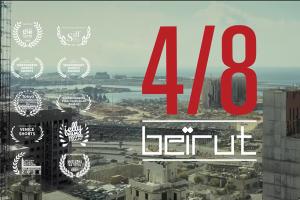Beirut'22 Documentary
YouTube, KASLebanon
On August 4, 2020 a large amount of unstable stored ammonium nitrate exploded in the port of Lebanon’s capital Beirut. It is considered as one of the most powerful non-nuclear explosions in history. More than 200 people were killed, 6,500 injured and 300,000 were left homeless. Among them many refugees residing in Beirut.
In September 2020 an international film team visited the city of Beirut, documenting the inconceivable, and devastating dimensions and damages of the blast. What we found were humans, telling their own, intimate stories of adversity, trauma, hope, and despair.
The short documentary "4/8 Beirut" was critically acclaimed and won at several international film festivals. It was also positively perceived by the Lebanese diaspora all over the world and shed a light on the most vulnerable.
Two years later we return to our protagonists. At a time when Lebanon is struggling with a deepening political, economic and humanitarian crisis, the documentary traces the hopes and perspectives of a community in transition.
These are their stories.
The interviewees report on the reasons for their escape and impressively describe the situation in their home countries. In addition, they address the challenges they face in Lebanon on a daily basis, especially given the worsening socio-economic situation and the blast on August 4, 2020 that exacerbated the situation in the country.
The interviewees further talk about the extent to which Lebanon has become a new home for them or not, and what they hope for their future.
The documentary addresses several aspects that we deal with on a daily basis in our foundation work – especially in view of our BMZ special initiative "combating the causes of flight and migration and reintegrating refugees". The movie portrays the possibilities of integrating refugees in their respective host countries and the difficult relationship between refugee and host community – showcasing the example of Lebanon.
The documentary also discusses the chances of a reconciliation between refugees and the majority population in their home countries and thus explores conditions for a possible return. In addition, the film impressively describes the situation of ethnic and religious minorities in Iraq: Iraqi Christians speak in two interviews about their stories of escaping from the terrorist group “Islamic State” (IS). The interviewees from Syria report on the other hand on the war in their home country and the suppression by the Assad regime, which led them to flee.
In this way the documentary explains different causes for migration – such as the persecution of minorities, violence and political persecution. The interviews finally allow a cautious prognosis of future events in the region, which above all allows to assess possible (new) refugee movements - which would affect not only the region but also Europe.




